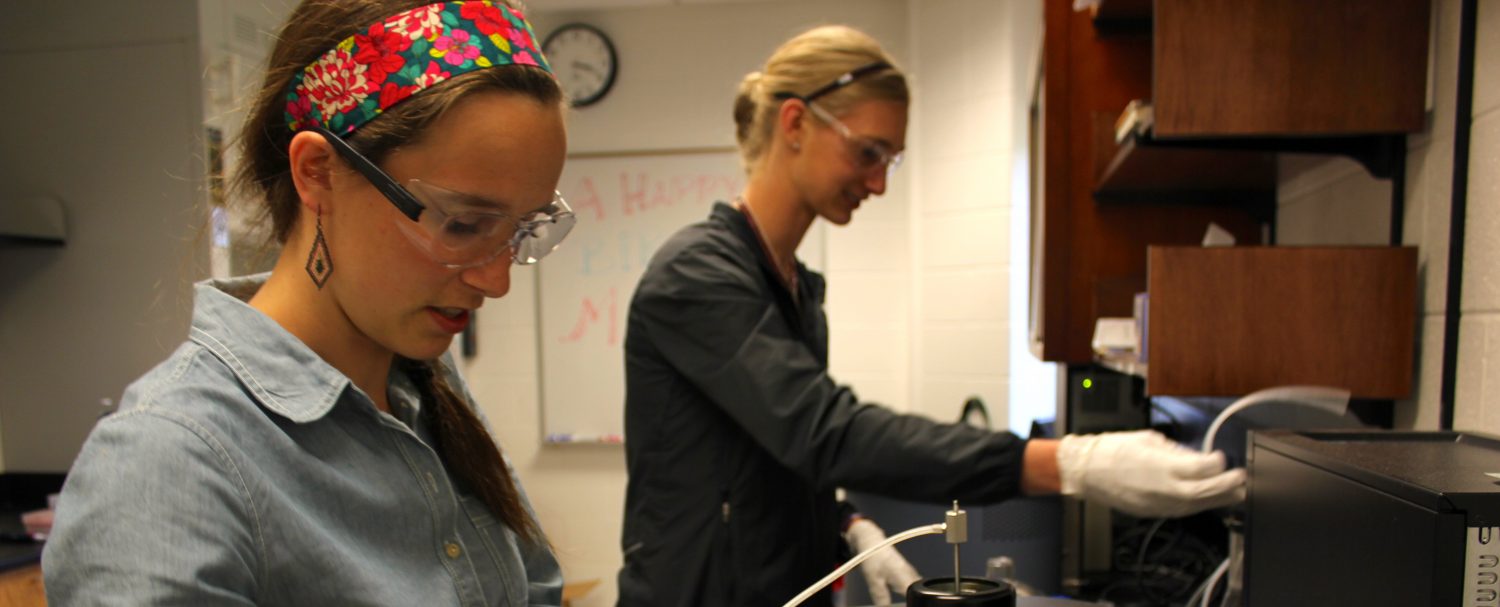Calvin has been recognized by the U.S. News and World Report as a top liberal arts college and an institution with top-notch undergraduate research programs.
In this year’s rankings, Calvin is one of 32 colleges and universities nationwide receiving special recognition under the category of undergraduate research and creative projects.
This past spring, college presidents, chief academic officers, deans of students and deans of admissions from across the country were encouraged to nominate institutions they felt had stellar examples of research programs, among other categories. Other institutions recognized for their undergraduate research include Yale, Harvard and the Massachusetts Institute of Technology.
“The recognition from U.S. News and World Report is a tremendous affirmation of the strong undergraduate research programs at Calvin and the support of the Calvin administration to sustain these programs,” said chemistry professor Eric Arnoys, who worked with several students this summer in research involving membrane proteins.
Calvin offers research opportunities, both during the summer and year-round, to students in a diverse range of fields including biology, chemistry, mathematics, astronomy, speech pathology and the social sciences.
Kelsey Veldkamp, a senior chemistry major, had the opportunity to do research in her department for two summers. Alongside Professor DeJong, she studied the bacteria and viruses found in the digestive systems of snails, with the potential that those findings could be translated into better understanding of human digestion.
She said that the chance to work closely with a professor was “invaluable,” and that the independent aspects of the research helped to build skills and gain confidence.
“It forces you to take learning into your own hands,” she said.
Senior Monica Langeland expressed similar feelings about the research program, emphasizing the importance of hands-on work outside of the classroom. When studying the effects of pollution on Michigan waterbirds with other Calvin students, she says, “I was able to explore a field of science that wasn’t covered in any classes I’d taken.”
Not only is research a valuable learning experience for students, but it often provides students with a chance to take their findings beyond Calvin, making presentations about their research in other academic settings.
“Students work as collaborators with faculty, pushing the boundaries of science in projects that will be useful to scholars outside of Calvin,” explained Arnoys, also citing the fact that some students co-author as many as five academic papers during their time at Calvin.
Arnoys points out that the quality of the research programs at Calvin has also been recognized by agencies that provide funding for research, such as the National Institutes of Health, American Chemical Society and the Dreyfus Foundation. “In a highly competitive environment when funding is rare, my colleagues continue to secure grant funding–nearly $5 million in the last five years–to support undergraduate research.”
Veldkamp agreed, saying, “For Calvin’s being the size that it is, we have incredible research opportunities.”
She added that the open-ended nature of research was one of her favorite aspects of the experience.
“You don’t know what the answer’s gonna be, and your professor doesn’t know what the answer’s gonna be,” she said. “That’s what’s exciting.”








